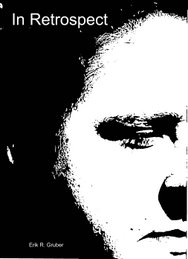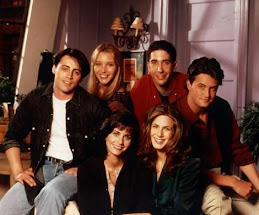This question has been cause for much debate between both religious leaders and Biblical scholars. It is a divisive issue that often pits Christians against fellow Christians. It is a question that I have wrestled with time and again in my search for true faith.
If the Bible isn’t the inerrant, divinely inspired Word of God, then what purpose does it serve for those seeking truth, morality and the will of God? If the Bible does in fact contain errors, inconsistencies, discrepancies, then can we use it as our guide in navigating life? If the entire Bible isn’t absolutely, entirely infallible, then what parts are? Do we get to pick and choose which parts to heed and which to ignore? If this is the case, then what exactly is Christianity based on other than an arbitrary selected set of doctrines?
Yet the more I ponder it, the more I find myself doubting the inerrancy of the Bible.
It’s not that I doubt that the Bible is the Word of God. I do believe that He inspired the text and that the message of the Bible is the message of God. Nor do I doubt the historical accuracy of Bible. I’m aware that there are numerous corroborating texts from the time period which attest to its historicity.
But to say that the Bible is the absolute, unaltered, inerrant word of God is, for me, a bit of a logical stretch. Allow me to explain why:
The primary logical hurdle is the answer to the question: How do we know that the Bible is inerrant? I wish I knew my theology better, but the standard first response to this question (that I have heard) is that we know the Bible is inerrant because scripture, which is the divinely inspired word of God, attests to its inerrancy. Inerrancy proponents will then quote some piece of scripture, most likely 2 Timothy 3:16: “All scripture is God-breathed and is useful for teaching, rebuking, correcting, and training in righteousness.”
I’m sure you all see the circular reasoning and logical absurdity of this argument. The Bible is inerrant because it says it is? Put the God issue, along with personal attachments and beliefs, aside for one moment and look at the preposterousness of this logic with me. As a text free from religious attachments, this supporting evidence for inerrancy is less than paper thin. There is no other book in the world that Christianity believes to be true simply because it proclaims its own truthfulness.
Everything the Bible says is true. How do we know? Because the Bible says that everything the Bible says is true, and everything the Bible says is true. Huh?
To further illustrate, take a look at the following statement: Everything I say is a lie. Was that statement a lie? Of course. Everything I say is a lie. But if everything I say is a lie, then so was that statement, which means everything I say is true. So the truth is, everything I say is a lie. Confused yet? Yeah, me too.
Internal justification simply doesn’t work. If I made a movie and introduced it by stating that it was inerrant, would that make it so? Absolutely not. You’d have to be a madman (or woman. Zizzle-Zot doesn’t discriminate) to take me at my word. So why do so many so readily accept the inerrancy of the Bible?
Now things get dicey, because to answer that question we must bring the God issue back into the picture. To believe in God requires a certain degree of blind faith, and that means at times we are required to take God at His word. If God says something is truth it’s probably best not to question it.
But is the Bible the absolute, 100%, without a doubt Word of God? I don’t know if I can believe that either.
The Bible, as we know it, was first approved at the 3rd Council of Carthage in 397 AD (feel free to dispute the historical accuracy of this, if it’s wrong. It’s been a while since I took Introduction to the Bible). Though the 27 books of the New Testament had been read and distributed widely (give or take) by Christian groups for hundreds of years, the 3rd Council of Carthage was the first to officially canonize them.
So let’s take a step back and look at what we have here: A collection of letters and stories written by men and then compiled by men. Yes I believe that the canonizers were (or at least the majority were) holy, righteous men that were truly concerned with the spreading of God’s message and the welfare of the church. But do we not imagine that these men had even slightly differing perceptions of what God’s message was, or differing ideas of what was best for the church? They did, after all, rise to influence over 300 years after the life of Jesus and were, in effect, far removed from the context of His teachings.
Do we not imagine that there was a minority that would be motivated by personal ambition, self interest, and insidious ends? A minority that had come to a position of power and influence in the church and would do what it took to maintain that position, even if that meant including or excluding books, books that perhaps supported or refuted said minority’s specific teachings, from Christianity’s holiest text?
And if this 3rd Council of Carthage was truly anointed by God to assemble the text that would be the guiding light for Christianity, where were the women? Where was representation from other parts of the world? Research I have done indicates that the 3rd Council of Carthage was in fact a regional council consisting mostly of bishops in Africa. Are we to believe that God didn’t see fit to include a more diverse cross section of humanity in the canonization process?
To put it in a modern context, imagine assembling the most influential Christian leaders of today to canonize a new Bible. We’d probably have the Pope, Billy Graham, maybe Brennan Manning, Rick Warren, Jim Wallis, Desmond Tutu if we’re lucky, etc. But then I imagine James Dobson, Pat Robertson and Jerry Falwell (RIP) would show up for the conversation. With these last three on the list do you suppose we would end up with a Bible reflecting the inerrant voice of God? Me neither. We would be left with a bias catalogue of personal interests and pet doctrines. It really isn’t even fair to limit the fault to Dobson, Robertson and Falwell. Wallis, Warren and Manning have their specialized scriptural interpretations as well.
The point is, the leaders of the church today would not be capable of abandoning their limited personal world views to truly recognize the Will and Word of God, so why do we imagine it was any different at the 3rd Council of Carthage in 397?
I’m going to stop there for today. I need some time to let my mind wrap around itself (weird, I know). I’ll be back tomorrow with whatever semblance of a conclusion I can come up with for this maze. Let me know your thoughts…
Thanks for reading.
 The world is full of cheaters. Their names, faces and nefarious deeds dominate print journalism, the nightly news, and perhaps most prominently ESPN’s Sportscenter (played on a loop eight times daily).
The world is full of cheaters. Their names, faces and nefarious deeds dominate print journalism, the nightly news, and perhaps most prominently ESPN’s Sportscenter (played on a loop eight times daily). Bill Clinton cheated on his wife and he’s one of America’s most beloved politicians. Martha Stewart cheated the stock market and she’s more popular now than before her prison term.
Bill Clinton cheated on his wife and he’s one of America’s most beloved politicians. Martha Stewart cheated the stock market and she’s more popular now than before her prison term.






































